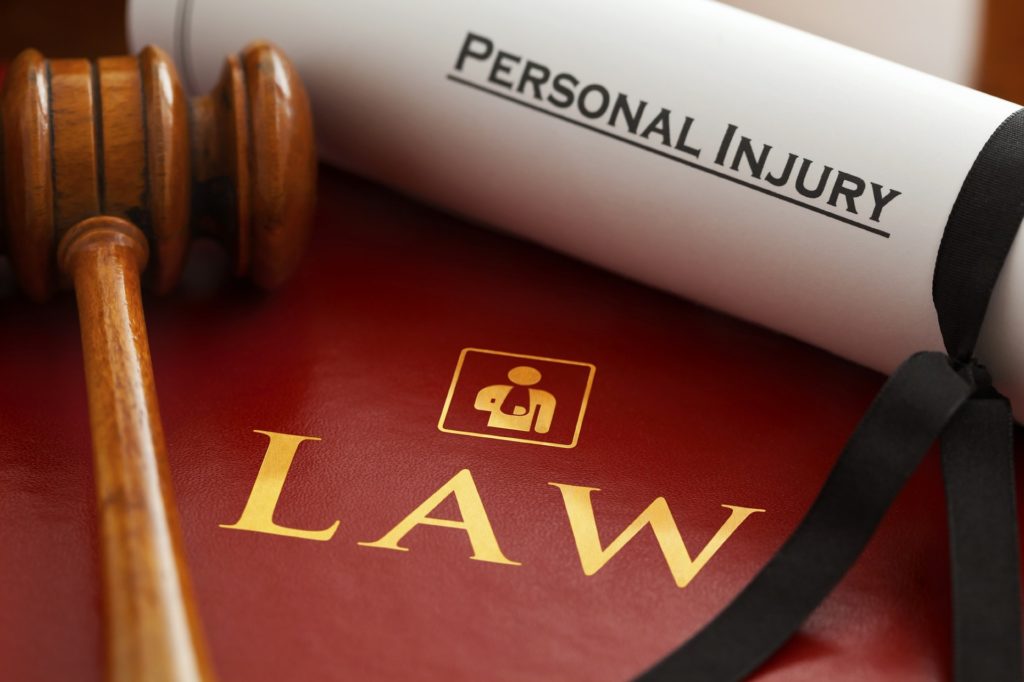
You might be considering filing a personal injury claim if you were in a car, slip and fall, or work accident. You’ll have a good case if the injuries were not your fault, and you shouldn’t be responsible for paying the resulting medical bills and damages. If someone maliciously attacked you, slandered your name, or caused any other intentional injury, you will also have a strong case.
If you win, you can collect damages in a variety of categories that might include, but are not limited to:
- Vehicle damage
- Personal property damage
- Out-of-pocket expenses
- Medical bills
- Pain and suffering compensation
- Loss of wages
- Other expenses associated with your inability to work, such as rent
Of course, the types of damages you can collect vary based on the type of accident you’re in. Your attorney can help you understand each variable and develop a reasonable sum to request from the at-fault party.
Now that you understand the personal injury claim basics, there are a few other things you’ll need to know for a successful personal injury case.
Hire a Lawyer
The law in most states allows you to defend yourself in a personal injury case. However, if you want a case with a higher settlement and greater odds at winning, you’ll hire an attorney. An experienced personal injury attorney in your state will tell you whether or not you have a strong case. Then, they’ll help you gather evidence and take statements to best defend your case.
Best of all, a personal injury attorney doesn’t cost you a cent until you win your case. They take their percentage out of your settlement or case winnings, and if you don’t win, they don’t require payment.
Keep in mind that a personal injury attorney can win you more than you can win for yourself. Therefore, it’s not worth trying to fight the case on your own for the sake of saving a few thousand dollars when you get your settlement.
Make a Strong Claim
It might seem like an open and shut case to you, but a judge will need a little more proof. It can be difficult to prove fault associated with injuries, damages, and the long-term consequences of an accident. You’ll need to develop a strong chain of evidence to earn your victory.
This requires gathering evidence. Here are three basic categories to start with:
- Witness Statements: If you haven’t already, take statements from any witnesses at the scene of the accident. If the police were called, they will record witness statements that you can access if need be.
- Photographic or Video Evidence: Having the presence of mind to record images at the scene of the accident is ideal, but you may be able to take photographs after as well. You might photograph the injury, the scene, and any incriminating evidence that points to the at-fault party.
- Physician Documentation: You must also document your injury with a certified physician. With your permission, your medical file will be submitted to prove your injury. In some cases, the physician may be able to ascertain that the injury was caused by someone else. Certain clues may point towards the guilty party. For example, if you were hit by someone, a physician can often prove that the wounds weren’t self-inflicted and that they were administered by someone of a certain height or build based on the pressure required to make a mark.
Settle vs. Go to Court
Most personal injury cases either end in a settlement or in court. The outcome depends entirely on the injury and the people involved.
If the case is taken to court, your attorney and the defendant’s attorney will battle it out in front of a judge and jury. Your attorney will present evidence, cross-examine witnesses, and prove your case. At the end, the judge and/or jury will determine your winnings.
A settlement occurs when the defendant, or the person being sued, names a certain dollar amount that they’ll pay you if you agree not to take the case to trial. You have the option to accept or deny this settlement.
Listen to the advice of your attorneys on this matter, as they have far more experience than you. The defendant might offer a tempting sum, but your attorney may strongly believe that your case will win an amount two times or more if you go to court.
You might also choose to settle if you don’t want to navigate the emotional strain of going to court. If this is the case for you, there’s no shame in it. A settlement is a win too.
Winning your personal injury case is a matter of having sound evidence to support your claim and a good lawyer to fight for you. Be smart in this matter and hire an attorney that believes in your case and will help you gain the compensation you deserve.